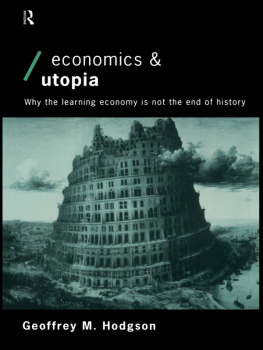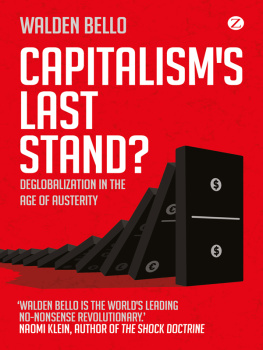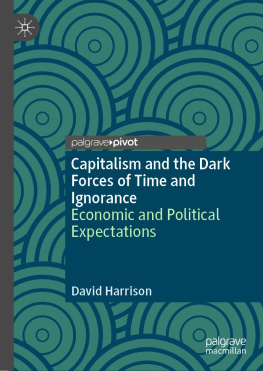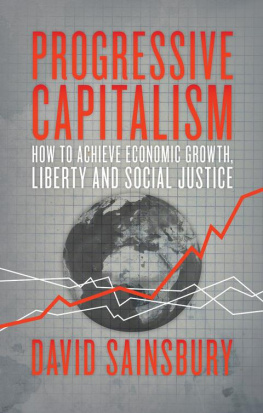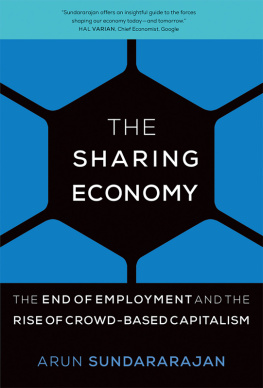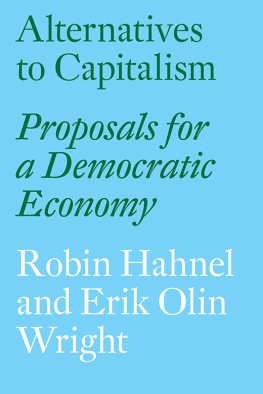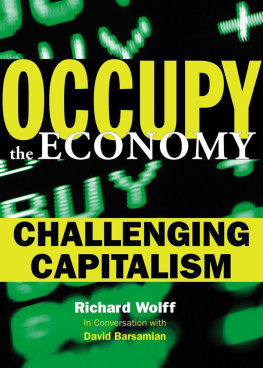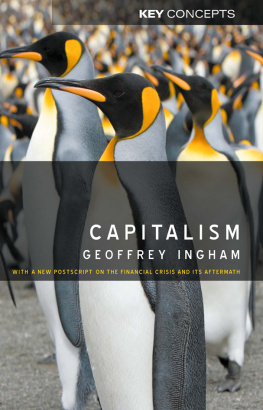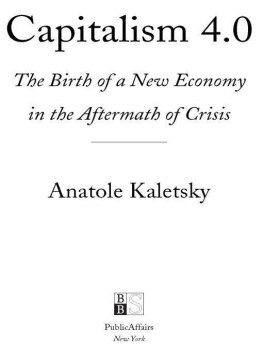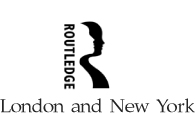For many, the collapse of the Eastern Bloc after 1989 signalled the obsolescence of all forms of utopian thinking. It was said that history had reached its end-state in the form of Western, individualistic capitalism. Economics and Utopia challenges this argument and opens up space for novel, pluralist and flexible discourses concerning possible futures.
Both the past utopias of traditional socialism and market individualism are shown to be inadequate, and especially inappropriate for a complex economy driven by innovation and rapid human learning. The idea of the end of history is challenged partly on the grounds that it ignores the immense and persistent variety of institutions and cultures within capitalism itself. In the final part of the book, possible yet hitherto unfamiliar futures beyond capitalism are explored, using a developed theoretical framework and modern techniques of scenario planning.
ECONOMICS AS SOCIAL THEORY
Series edited by Tony Lawson
University of Cambridge
Social theory is experiencing something of a revival within economics. Critical analyses of the particular nature of the subject matter of social studies and of the types of method, categories and modes of explanation that can legitimately be endorsed for the scientific study of social objects, are re-emerging. Economists are again addressing such issues as the relationship between agency and structure, between the economy and the rest of society, and between enquirer and the object of enquiry. There is renewed interest in elaborating basic categories such as causation, competition, culture, discrimination, evolution, money, need, order, organisation, power, probability, process, rationality, technology, time, truth, uncertainty and value, etc.
The objective of this series is to facilitate this revival further. In contemporary economics the label theory has been appropriated by a group that confines itself to largely asocial, ahistorical, mathematical modelling. Economics as Social Theory thus reclaims the theory label, offering a platform for alternative, rigorous, but broader and more critical conceptions of theorising.
Other titles in this series include:
ECONOMICS AND LANGUAGE
Edited by Willie Henderson
RATIONALITY, INSTITUTIONS AND ECONOMIC METHODOLOGY
Edited by Uskali Mki, Bo Gustafsson and Christian Knudson
NEW DIRECTIONS IN ECONOMIC METHODOLOGY
Edited by Roger Backhouse
WHO PAYS FOR THE KIDS?
Nancy Folbre
RULES AND CHOICES IN ECONOMICS
Viktor Vanberg
BEYOND RHETORIC AND REALISM IN ECONOMICS
Thomas A. Boylan and Paschal F. OGorman
FEMINISM, OBJECTIVITY AND ECONOMICS
Julie A. Nelson
ECONOMIC EVOLUTION
Jack J. Vromen
THE MARKET
John ONeil
Forthcoming:
CRITICAL REALISM IN ECONOMICS
Edited by Steve Fleetwood
THE NEW ECONOMIC CRITICISM
Edited by Martha Woodmansee and Mark Osteen
ECONOMICS AND UTOPIA
Why the learning economy is not the end of history
Geoffrey M. Hodgson
First published 1999
by Routledge
11 New Fetter Lane, London EC4P 4EE
Simultaneously published in the USA and Canada
by Routledge
29 West 35th Street, New York, NY 1001
This edition published in the Taylor & Francis e-Library, 2001.
1999 Geoffrey M. Hodgson
The right of Geoffrey M. Hodgson to be identified as the Author of this Work has been asserted by him in accordance with the Copyright, Designs and Patents Act 1988
All rights reserved. No part of this book may be reprinted or reproduced or utilised in any form or by any electronic, mechanical, or other means, now known or hereafter invented, including photocopying and recording, or in any information storage or retrieval system, without permission in writing from the publishers.
British Library Cataloguing in Publication Data
A catalogue record for this book is available from the British Library
Library of Congress Cataloging in Publication Data
Hodgson, Geoffrey Martin
Economics and Utopia: why the learning economy is not the end of history / Geoffrey M. Hodgson.
p. cm. (Economics as social theory)
Includes bibliographical references and index.
1. Liberalism. 2. Economics. 3. Utopian socialism. 4. Marxian economics.
I. Title. II. Series.
HB95.H63 1999 9818791
330dc21 CIP
ISBN 0-415-07506-8 (hbk)
ISBN 0-415-19685-X (pbk)
ISBN 0-203-02571-7 Master e-book ISBN
ISBN 0-203-17223-X (Glassbook Format)
Anyone who fears that we face a future of ever more strident market individualism can take comfort from this eloquent counterblast. It is not just that Hodgsons economic philosophy rests on broader, more congenial, more human values. He also offers hope that ever more knowledge-intensive economies will have to adapt to such broader values to survive.
Professor Ronald Dore,
Centre for Economic Performance,
London School of Economics, UK
Institutions, evolution and now utopia. Geoff Hodgsons confident and creative reworking of critical perspectives in economics continues. Economic theories that ignore alternative ways the world could be are not only morally empty but inefficient. Yet the necessity of variety requires not a static utopia but an adaptable evotopia. These are ideas for all social scientists, not just economists.
Professor Ian Gough,
Department of Social and Policy Sciences,
University of Bath, UK
This book makes all of us think again about what should be (and regrettably are not) the main topics of economics. It shows how economics can still be useful to understand the possible directions that our society may take and it helps us in the choice of policies that may favour one of them. It is very well written and engages the reader in a challenging dialogue with the author and, at the same time, with the most important economists who have shaped the history of economic analysis. It deserves to be a great success and I am confident that it will be one.
Professor Ugo Pagano,
Department of Economics,
University of Sienna, Italy
This is a brilliant, very ambitious and sensible work. It is more a work of diagnosis and critique than of prescription and prognosis, but it does focus on key elements of any future economy: diversity, innovation, learning, the structure and culture of governance and the forms of participatory democracy, and so on. The work further enhances the reputation of Hodgson as the leading institutionalist theorist of the present day; more important, it should stimulate much further work by others.

